Home › Hallway Group
Hallway Group
The Mental Health Commission of Canada (MHCC) was established to help create an integrated mental health system to improve the lives of Canadians living with mental illness. It encourages collaboration among governments, service providers, employers, and researchers, as well as Canadians living with mental illness, their caregivers and families.
The Hallway Group was created in 2009 as part of the Opening Minds Anti-Stigma program with the goal to make a difference in the lives of people living with mental illness or mental health issues. Rather than laying on programs from the top down, this group had the knowledge, experience, and leadership from the grassroots or community level to provide feedback on tackling stigma in communities.
The name of the Hallway Group is important to the foundation of this group. It details the fact that in many groups and communities, the most important conversations take place away from the table, in the halls. The focus of this group is to ensure that those important hallway conversations make their way to the table.
The Hallway Group is a group of individuals, all of whom are people with lived experience (PWLE) with a mental illness either personally or through a loved one. Their role is to provide expert advice on specific initiatives, projects, and key priority areas through the much needed critical lens of PWLE.
Hallway Group Members

Anita David
Anita David
- Co-Chair
Anita has transformed her lived and living experience into a career in mental health and substance use health advocacy, engagement, research, and education. As a lived experience strategic adviser at BC Mental Health and Substance Use Services, she is involved in meaningfully engaging staff members with lived and living experience. She also advises for the organization’s Research Challenge program and Provincial Mental Health and Substance Use Network and is a hub member on its ECHO (Extension of Community Healthcare Outcomes) team.
In addition, Anita works as a peer researcher and patient partner on community-based/ patient-oriented research projects with organizations, health authorities, and universities in British Columbia. She advocates for meaningful peer employment and skill building through her work as a community-based research trainer and peer mentor with the Canadian Mental Health Association, frequently teaching workshops on patient-oriented research.
After completing our SPARK knowledge translation program, Anita created a project that helps people with lived and living experience explore their mental health and/or substance use experiences and deliver a speech. She now serves as a SPARK mentor for new trainees.
Anita herself has spoken about her work and personal experiences at special events and conferences. In 2018, she shared her mental health journey at a storytelling event with a piece called, “Champagne and a Soaker Tub.” The following year, she had a unique opportunity to turn it into a 20-minute dramatic performance as part of mental health theatre show. Through her experiences, Anita has found passion and purpose for working in mental health, reducing stigma, and helping others.
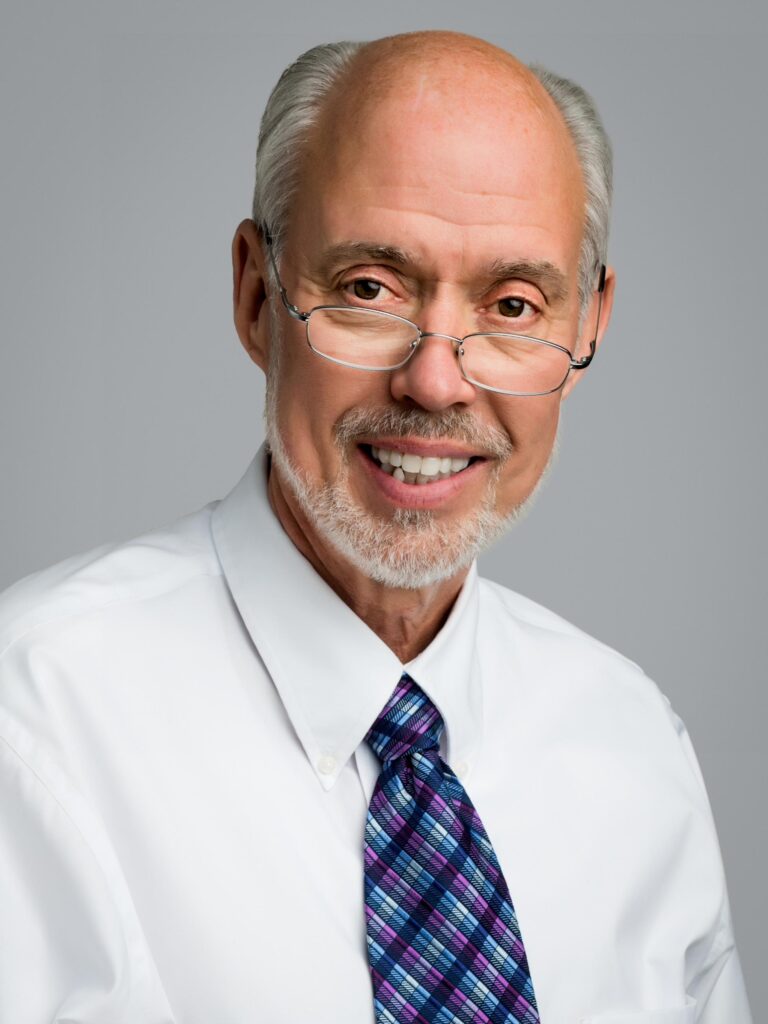
Chris Summerville
Chris Summerville
- Co-Chair
Chris has been the CEO of the Schizophrenia Society of Canada since 2007. For 25 years he led the Manitoba Schizophrenia Society as it’s CEO. He has served on numerous local, regional, provincial and national boards including the Mood Disorders Society of Canada, The National Network for Mental Health, Psychosocial Rehabilitation Canada, and the South Eastman Regional Health Authority (Manitoba). He has also served as Co-Chair of the Canadian Alliance on Mental Illness and Mental Health.
With an earned doctorate from Dallas Theological Seminary, he is a Certified Psychosocial Rehabilitation Recovery Practitioner (CPRRP). He received an honorary Doctor of Laws from Brandon University in 2014.
As a family member (father and brother with Bi-Polar Disorder, a brother with schizophrenia, siblings living with depression, and two suicides in his family) and a recipient of mental health services himself, Chris believes our society and leaders must see mental illness, not merely as a health issue, but as a social justice issue that addresses the inequities, inequalities and injustices towards those living with mental illness (and their families), who have been ghettoized, stigmatized, marginalized, and disenfranchised through systemic discrimination. Consequently, Chris is a passionate supporter and promoter of the recovery philosophy, peer support workers, the social inclusion of people living with mental illness, and the need to address the social determinants of health, mental health promotion and prevention.
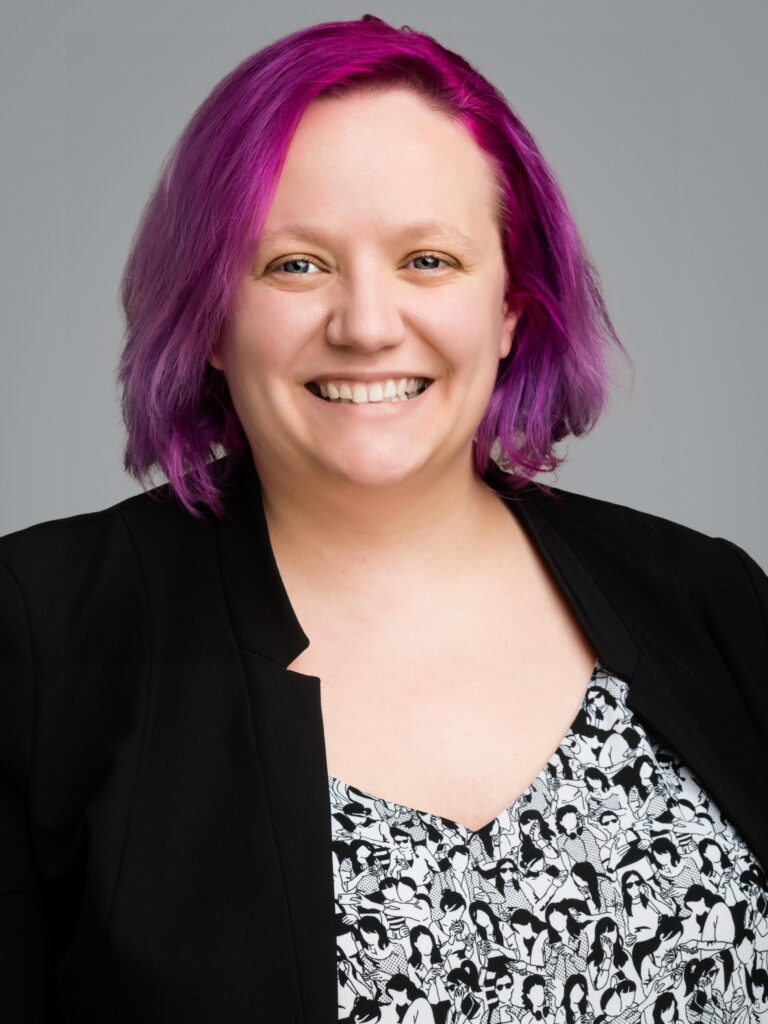
Al Raimundo
Al Raimundo
Al (they/them) is working to empower young people to overcome mental health stigma and create treatments that are accessible and fun. Inspired by their own struggles with mental illness, Al has been involved in a variety of projects. They helped create the BeanBagChat at Stella’s Place, which helps young adults find the support they need. They have also shared their story on numerous stages, including at the United Nations, the House of Commons standing committee on the status of women, TEDxWaterloo, and One Young World. In addition, Al writes for the Huffington Post, has written a book aimed at schools to educate young people on suicide, and was featured in Vanity Fair with Cher.
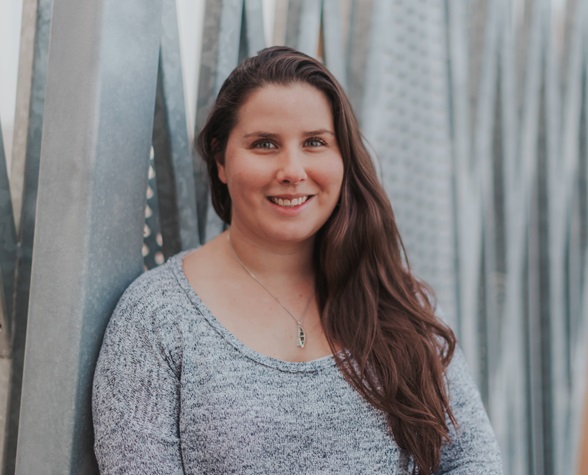
Allison Dunning
Allison Dunning
Allison (she/her) pulls from her personal lived and living experience of mental health challenges while building, implementing, and evaluating peer support programs across Canada. As a provincial peer support coordinator at the Mood Disorders Association of Ontario, a peer initiatives manager at Stella’s Place, and the founder and principal at Dunning Consulting, she has developed and implemented peer support programs across varied settings in Ontario. These include post-secondary institutions, hospitals (emergency departments and inpatient units), community organizations, and workplaces.
Today, Allison continues her leadership role in a peer support as the national manager for Peer Support Canada. As she continues to cope with mental health challenges, she draws on these experiences to inform her work. She also recognizes her privileges as a white, cis-gendered female settler and is personally and professionally committed to ongoing decolonization. In her spare time, Allison enjoys canoeing, camping, and spending time with her beloved dog, Bella.

Don Mahleka
Don Mahleka
Don Mahleka (he/him) was born and raised in Zimbabwe and moved to Canada as a refugee during high school. He has brought many of the structural barriers he has faced since then (especially mental health-related supports) into collaborations with equity-deserving groups in areas such as program and policy development, change management, and community-based research to spark innovations in health equity.
As a speaker, facilitator, and equity consultant Don supports organizations in dismantling systemic racism and oppression while rebuilding cultures of wellness and mutual accountability. Additional professional experience includes roles at Hamilton’s Space Youth Centre, St. Joseph’s Healthcare Hamilton, the Public Health Agency of Canada, the Centre for Addiction and Mental Health (CAMH), and several years in mental health crisis intervention and counselling.
Don has also supported our development of national standards for workplace and post-secondary mental health and wellness. He is currently co-developing an online training module on structural stigma.
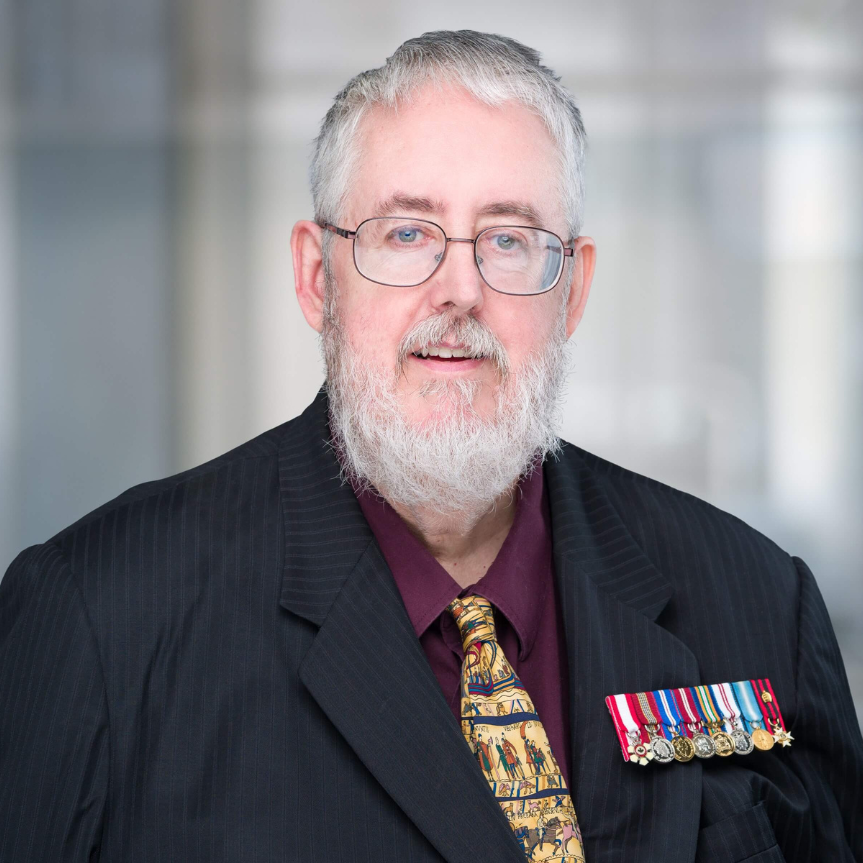
Dr. Austin Mardon
Dr. Austin Mardon
Austin Mardon is a mental health advocate who has lived with schizophrenia in his family since the age of five, and personally since he was 30 years old. He served in the Reserves in Lethbridge and was a field member on a NSF NASA meteorite expedition 170 km from the South Pole before he became ill. He finished a distance learning PhD in geography from Greenwich University, Australia. Equally impressive has been his work on behalf of the mentally ill. In addition to giving countless interviews to the media on the topic of mental illness, Austin has published articles about faith and schizophrenia, homelessness, medication, and income support.
Austin is a Member of the Order of Canada, has served on several boards, has volunteered with several mental health agencies, and was a founding member for Prosper Place Clubhouse in Edmonton, Alberta. He has authored sixty books and over 300 articles. Recently, Austin received the Medal of Honour from the Canadian Medical Association. He is an Honorary Fellow of the Royal Society of Canada and received the Bill Jeffries Family Award (2007) of the Schizophrenia Society of Canada. He also served as a public member on the Alberta College of Social Workers and the Premier’s Council on the Status of Persons with Disabilities.
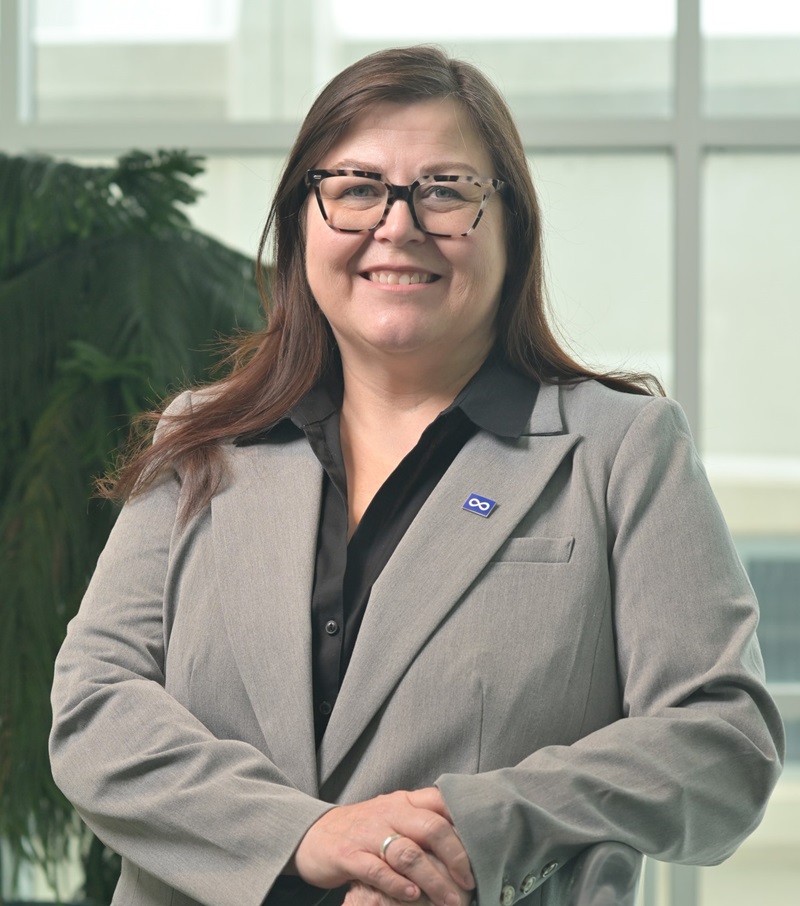
Dr. Cheryl Pollard
Dr. Cheryl Pollard
Cheryl Pollard, RN, RPN, PhD, ANEF, is a professor in the faculty of nursing at the University of Regina. Over her 35-year career in nursing, she has served in a wide range of academic and practice environments across large and small public and not-for-profit organizations in Canada. In 2019, the National League of Nursing recognized Dr. Pollard’s enduring and substantial contributions to nursing education by inducting her as a fellow into the Academy of Nursing Education. She is widely regarded as a thought leader and scholar in health-care education, innovation, and leadership.
With her daughter and stepson, Cheryl also provides grounding and support to a dedicated husband and wonderful dad, a veteran with significant and irretractable operational stress injuries. Her caregiving responsibilities and own experiences of living with post-partum depression have helped shape her views on patient and caregiver engagement as well as the insidious consequences of stigma and prejudice
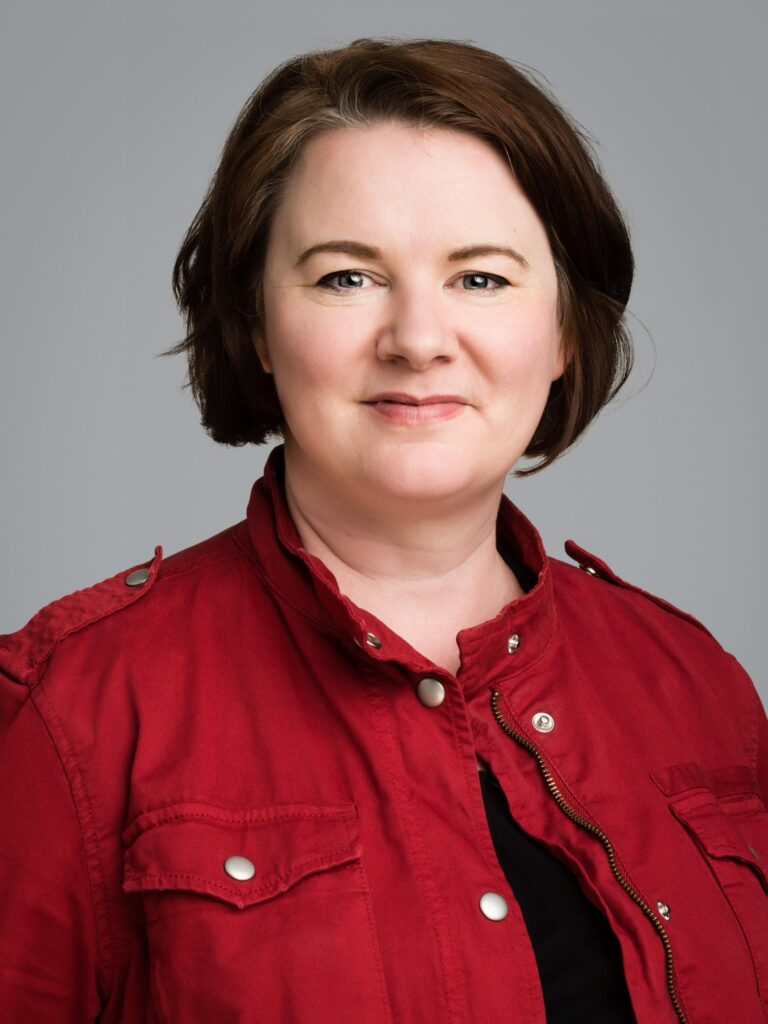
Shaleen Jones
Shaleen Jones
Shaleen has worked in the fields of peer support and mental health for over 20 years, holding leadership positions with peer led organizations such as the BC Eating Disorders Association, Laing House, and Peer Support Canada. She was recognized for her contribution to mental health with the Inspiring Lives Award from the Mental Health Foundation of Nova Scotia and sits on the Minister of Health’s Mental Health Advisors group. Shaleen manages anxiety and has recovered from an eating disorder. As a parent of a child with mental health concerns, she has learnt about the challenges of our mental health system from a different perspective. Her experiences led to her commitment to mental health systems reform and her belief in the power of peer support. Shaleen is the Executive Director for Eating Disorders Nova Scotia.

Ubah Mohamoud
Ubah Mohamoud
Ubah (she/her) is a Canadian certified counsellor with a master’s degree in spiritually integrative psychotherapy from St. Stephen’s College at the University of Alberta in ᐊᒥᐢᑿᒌᐚᐢᑲᐦᐃᑲᐣ, Amiskwacîwâskahikan (Beaver Hills House, colonially known as Edmonton). In addition to her clinical work, she provides safe(r) spaces for professional training, consultation, healing/sharing circles, and presentations, which are designed to raise mental health literacy, engagement, and awareness at the community level.
Ubah joins the Hallway Group after serving on our Youth Council as an advocate and adviser to stakeholders and policy makers on youth-related mental health concerns, particularly as they relate to diverse populations. Her current work continues to address mental health awareness, advocacy, and literacy with a focus on immigrant, refugee, ethnocultural, racialized, and newcomer populations as well as second and third generation Canadians.